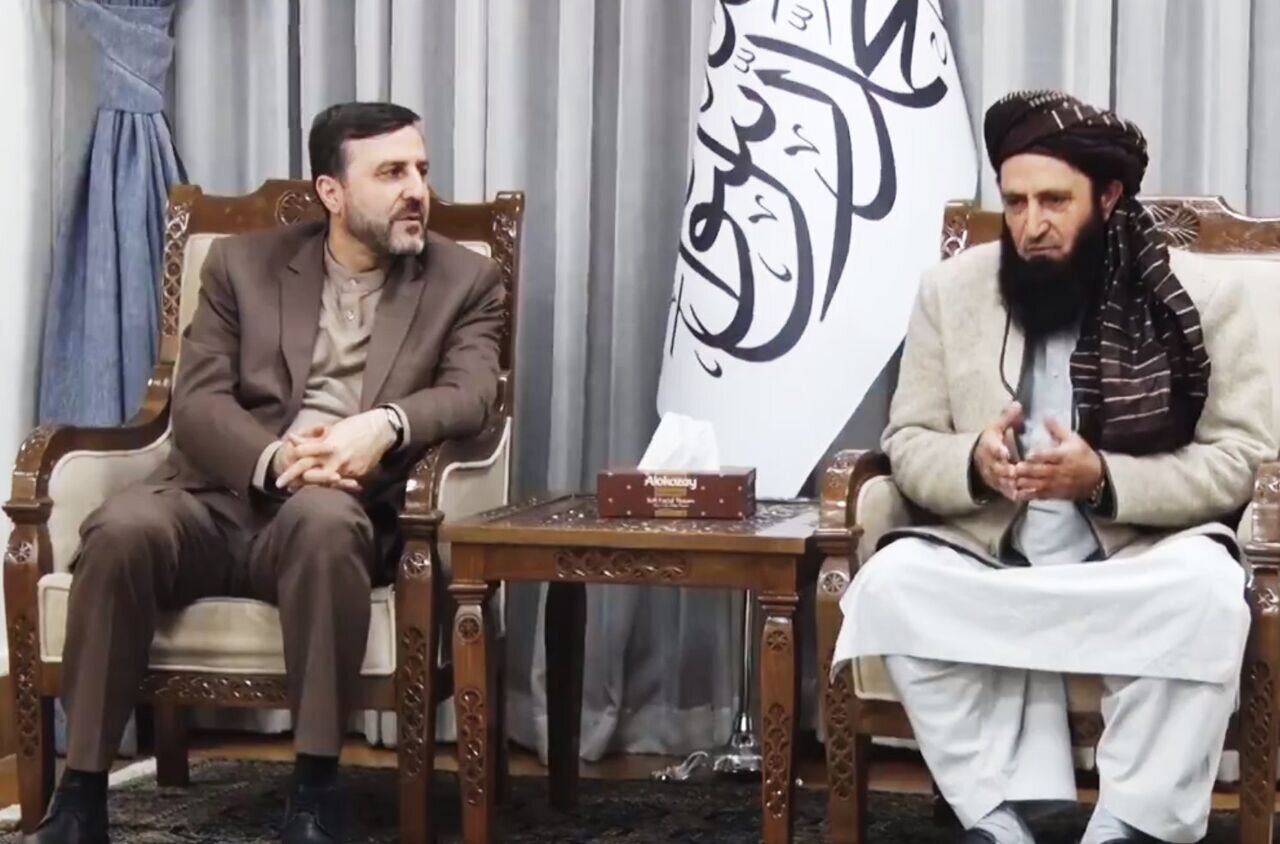Iran, Afghanistan judiciary officials seek more cooperation

TEHRAN- Kazem Gharibabadi, secretary of the High Council for Human Rights and deputy head of the Iranian judiciary, and Abdul Ghani Faiq, the deputy Taliban minister of justice, discussed ways for further cooperation.
In a meeting on Saturday, they emphasized strengthening cooperation in the judicial field and providing more facilities for the transfer of prisoners.
Gharibabadi also noted that Tehran is determined to transfer Afghan prisoners from Iran to Afghanistan and provide suitable facilities for Afghan immigrants in the country.
“There is a very large population of Afghan nationals in Iran, and due to that, sometimes challenges, problems and issues arise, therefore there is a need for two judicial systems of Iran and the Afghan government to level up their cooperation especially in the judicial, legal and consular fields,” he added.
Faiq, for his part, said that the visit of the Iranian delegation is very meaningful which is aimed at building communication and solving the issues of Afghanistan.
He went on to continue that it is appropriate to have two-way communication between the two countries in various fields, including medical fields, mining exploration and education.
Back in December, in a meeting with Iranian Ambassador to Afghanistan Hassan Kazemi Qomi, Afghanistan's acting foreign minister, Mawlawi Amir Khan Muttaqi, reiterated the need for dialogue and understanding to address the bilateral issues between Afghanistan and Iran.
During the meeting, the Iranian envoy underscored Tehran's support for the current Afghan government, stating that Iran had staunchly defended Afghanistan's position during a recent Doha meeting.
Qomi also emphasized the importance of managing the shared border between the two nations through close coordination.
Muttaqi, on his part, emphasized the enduring and amicable ties between the two countries and advocated for the resumption of Afghan prisoner transfers and the facilitation of Afghan visa issuance procedures.
He echoed the sentiment that dialogue and mutual understanding would pave the way for resolving the existing bilateral matters.
The meeting also reportedly delved into the topic of Helmand River water rights, highlighting the need for a collaborative approach to addressing this shared resource management issue.
These discussions underscore the ongoing efforts by Afghanistan and Iran to foster constructive relations and address the concerns that arise between the two neighboring nations.
In a post on X on Saturday, Kazemi Qomi expressed that Afghanistan’s stability and security determine the stability and security of the whole region.
He also said that Afghanistan is one of the important issues of the foreign policy of the countries in the region.
Last weeks, the deputy prime minister of the Taliban for political affairs, Mohammed Abdul Kabir and Kazemi Qomi attended a meeting, discussing ways to combat terrorism in the region.
Declaring the Daesh terrorist group to be the shared adversary of Iran and Afghanistan, Abdul Kabir asserted the group’s goal is to kill innocent people and undermine regional stability.
Additionally, he expressed gratitude to Iran for its support of Afghanistan, stating that it encourages deeper ties with all of its neighbors.
The Taliban’s explicit stance is that no danger emanating from Afghanistan should be directed at other countries, he noted, underlining Kabul’s efforts to play a positive role in the building of regional peace and stability.
